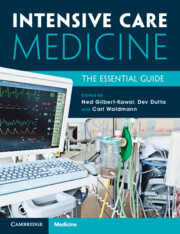Book contents
- Intensive Care Medicine
- Intensive Care Medicine
- Copyright page
- Dedication
- Dedication
- Epigraph
- Contents
- Contributors
- Preface
- Foreword
- Abbreviations
- Section 1 Resuscitation and Management of the Acutely Ill Patient
- Section 2 Diagnosis, Assessment, Investigation, Monitoring and Data Interpretation
- Domain 3 Disease Management: Recognition, Causes and Management
- Section 4 Therapeutic Interventions and Organ Support
- Domain 5 Practical Procedures
- Section 6 Perioperative Care
- Section 7 Comfort and Recovery
- Section 8 End-of-Life Care
- Section 9 Paediatric Care
- Introduction
- Differences
- Clinical Assessment
- Introduction
- Scoring Systems and Quality Metrics in PICU
- Paediatric Intensive Care Transport Services
- Changing Patterns of PICU
- Relevance to the Intensivist
- How Widespread Is Child Abuse?
- Types of Abuse
- The Safeguarding Process – Roles, Responsibilities and Processes
- Respiratory Anatomy and Physiology in Children
- Upper Airway Obstruction
- Intubating the Child with Upper Airway Obstruction
- Paediatric Acute Respiratory Distress Syndrome
- Diseases of the Lower Airway
- High-Flow Nasal Cannulae
- Continuous Positive Airway Pressure
- Mechanical Ventilation
- High-Frequency Oscillatory Ventilation
- Extracorporeal Membrane Oxygenation
- Definition and Recognition of Sepsis
- Patterns of Sepsis Presentation
- Haemodynamics of Paediatric Septic Shock
- Protocolised Management of Sepsis
- Current Controversies
- Outcomes in Sepsis and Septic Shock
- Introduction
- Status Epilepticus
- Coma
- Neurosurgical Emergencies
- Introduction
- Initial Management
- Sudden Unexpected Death in Infancy and Sudden Infant Death Syndrome
- Introduction
- Presentation in Infancy
- Diagnosis and Management of Infants with Suspected Congenital Heart Disease
- Norwood Stage 1, Glenn or Fontan
- Acute Presentations
- Introduction
- The Primary Survey
- Head Injury
- Cervical Spine Injury
- Introduction
- Acute Liver Failure
- Inborn Errors of Metabolism
- Diabetic Ketoacidosis
- Introduction
- Analgesic Agents
- Sedative Agents
- 9.1 Assessment and Management of the Sick Child
- 9.2 Organisation of Paediatric Intensive Care and Paediatric Intensive Care Transport Services in the UK
- 9.3 Safeguarding and Non-accidental Injury
- 9.4 Respiratory Failure
- 9.5 Paediatric Sepsis
- 9.6 Acute Neurological Disorders
- 9.7 The Collapsed Infant
- 9.8 Congenital Heart Disease
- 9.9 Trauma
- 9.10 Acute Liver Failure, Inborn Errors of Metabolism and Diabetic Ketoacidosis
- 9.11 Analgesia and Sedation in the Paediatric Intensive Care Unit
- Section 10 Transport
- Section 11 Professionalism, Patient Safety, Governance and Health Systems Management
- Index
- References
9.5 - Paediatric Sepsis
from Section 9 - Paediatric Care
Published online by Cambridge University Press: 27 July 2023
- Intensive Care Medicine
- Intensive Care Medicine
- Copyright page
- Dedication
- Dedication
- Epigraph
- Contents
- Contributors
- Preface
- Foreword
- Abbreviations
- Section 1 Resuscitation and Management of the Acutely Ill Patient
- Section 2 Diagnosis, Assessment, Investigation, Monitoring and Data Interpretation
- Domain 3 Disease Management: Recognition, Causes and Management
- Section 4 Therapeutic Interventions and Organ Support
- Domain 5 Practical Procedures
- Section 6 Perioperative Care
- Section 7 Comfort and Recovery
- Section 8 End-of-Life Care
- Section 9 Paediatric Care
- Introduction
- Differences
- Clinical Assessment
- Introduction
- Scoring Systems and Quality Metrics in PICU
- Paediatric Intensive Care Transport Services
- Changing Patterns of PICU
- Relevance to the Intensivist
- How Widespread Is Child Abuse?
- Types of Abuse
- The Safeguarding Process – Roles, Responsibilities and Processes
- Respiratory Anatomy and Physiology in Children
- Upper Airway Obstruction
- Intubating the Child with Upper Airway Obstruction
- Paediatric Acute Respiratory Distress Syndrome
- Diseases of the Lower Airway
- High-Flow Nasal Cannulae
- Continuous Positive Airway Pressure
- Mechanical Ventilation
- High-Frequency Oscillatory Ventilation
- Extracorporeal Membrane Oxygenation
- Definition and Recognition of Sepsis
- Patterns of Sepsis Presentation
- Haemodynamics of Paediatric Septic Shock
- Protocolised Management of Sepsis
- Current Controversies
- Outcomes in Sepsis and Septic Shock
- Introduction
- Status Epilepticus
- Coma
- Neurosurgical Emergencies
- Introduction
- Initial Management
- Sudden Unexpected Death in Infancy and Sudden Infant Death Syndrome
- Introduction
- Presentation in Infancy
- Diagnosis and Management of Infants with Suspected Congenital Heart Disease
- Norwood Stage 1, Glenn or Fontan
- Acute Presentations
- Introduction
- The Primary Survey
- Head Injury
- Cervical Spine Injury
- Introduction
- Acute Liver Failure
- Inborn Errors of Metabolism
- Diabetic Ketoacidosis
- Introduction
- Analgesic Agents
- Sedative Agents
- 9.1 Assessment and Management of the Sick Child
- 9.2 Organisation of Paediatric Intensive Care and Paediatric Intensive Care Transport Services in the UK
- 9.3 Safeguarding and Non-accidental Injury
- 9.4 Respiratory Failure
- 9.5 Paediatric Sepsis
- 9.6 Acute Neurological Disorders
- 9.7 The Collapsed Infant
- 9.8 Congenital Heart Disease
- 9.9 Trauma
- 9.10 Acute Liver Failure, Inborn Errors of Metabolism and Diabetic Ketoacidosis
- 9.11 Analgesia and Sedation in the Paediatric Intensive Care Unit
- Section 10 Transport
- Section 11 Professionalism, Patient Safety, Governance and Health Systems Management
- Index
- References
Summary
Key Learning Points
1. Sepsis remains a major cause of death in the paediatric population.
2. Mortality is higher in children with co-morbidities than in those without.
3. Volume resuscitation is still the mainstay of initial resuscitation.
4. Adrenaline is a rational choice as a first-line vasoactive agent.
5. Combining clinical examination with plasma lactate can be used to guide resuscitation.
- Type
- Chapter
- Information
- Intensive Care MedicineThe Essential Guide, pp. 703 - 707Publisher: Cambridge University PressPrint publication year: 2021



